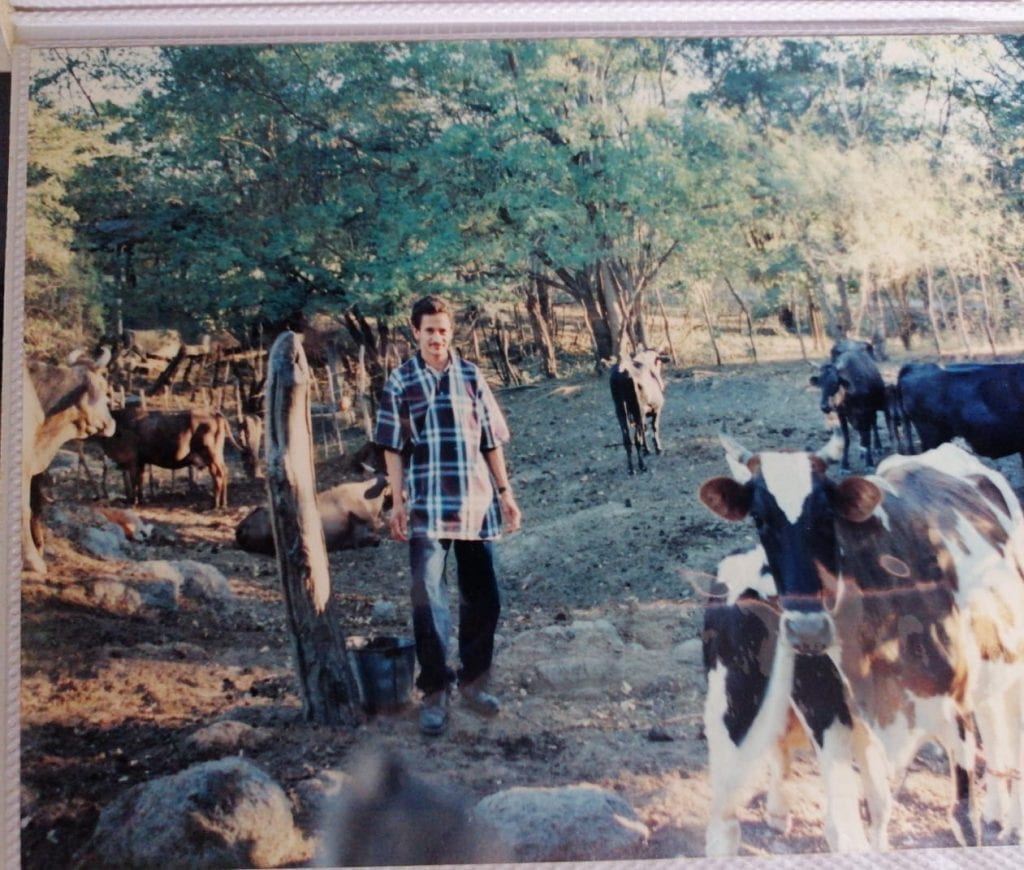Maritza has been a friend to Pop-Ups for several years. She is a gifted playworker at AP at the Parish School, a warm host to Campference visitors, and creator of truly magnificent pupusas. As a student on our Playworker Development Course, Maritza has now shared a personal reflection on growing up and playing during El Salvador’s civil war. Thank you, for this rich and funny story of experiencing joy during war.In the late 1970s, a civil war broke out in my home country of El Salvador. I was only 11 years old when the fighting began. The war lasted for twelve years and during that time, many things changed. Things like the freedom to go outside and play with your friends. I grew up in the countryside of El Salvador. There, I felt we had just a bit more freedom than the children living in the city. We could go play in a river five minutes away from my home, traffic was nonexistent, and going outside was like going on an adventure in the wild.
Playing in the midst of War
Most of the neighbours my age were growing boys with few girls to complement them. When they had time, the boys would meet in a designated ditch they used as a meeting spot. This was only if they completed their chores. Things like peeling corn, feeding livestock and poultry, organising firewood for make everyday meals. During the war, the guerilla fighters would call their gatherings “meetings” even though they only spoke Spanish. These “meetings” were designed to recruit the townspeople to join their cause. In the same way, the boys in my neighbourhood would have “meetings” in their designated neighbourhood ditch. In this meeting the boys would recruit their friends to be on two separate teams; one representing the guerrilla fighters fighting for social justice, and the other team representing the armed forces attempting to silence the guerillas’ efforts.
Each team was responsible for creating their own weapons and defences against their respective enemies. The teams would assume their strategic positions, ready their weapons, and enter into a full-fledged battle. After a battle was finished for the day, teams would switch roles so that each player fought for both of the ideas being truly fought for right outside our houses. Most of the girls weren’t allowed to participate in this daily meeting but we found a way to get involved. After much fighting and running around, the boys would be starving. The girls would save some handmade corn tortillas from lunch and bring them to the battlegrounds. They would feed the boys corn tortillas with sour cream and salt. At the time, to us, this savoury snack was equivalent to the deliciousness of a warm slice of Texas toast with the best jam and butter you’ve ever had.
War and play
Day after day, we would exhaust ourselves with a full evening of battling. Sometimes the battling would take place all day. The war caused many roadblocks which prevented students from making it to school. These were the days we had enough time to truly stock up on weapons and ammunition. We used small rocks as bullets and random tree branches as guns. We would climb trees to pick grenade sized fruit called Jicaros. These fruits grow on Calabash trees around the world. The boys would go so far as to steal belts from their fathers, hang small bags on the sides, and fill them with rocks in an attempt to look more soldier-like or guerilla fighter-like. We considered slingshots to be the most feared weapon of war.
Each team had their arsenal of slingshots and they were traded for different items such as candy and rocks. The reason these slingshots were so dangerous as a consequence of our beautiful imaginations in how we coped with the war. We collectively decided that the ammunition for our slingshots would be dried cow poop! Since our parents owned cattle, there was never a shortage of ammo. We would use sticks to delicately separate the poop into the right sizes. Instead of worrying about getting welts from typical rocks hitting your skin, we worried about being the smelly kid in town for the week.
Creating joy during war through playwork
Children will find ways to play out what they are experiencing if they have the opportunity. Whether that experience is happening now or in the past, playing that experience out in a safe way is a healthy way to tend to the anxieties and stressors that children are affected by on a daily basis. In my case, my imagination helped me process what was truly going on in my country without having to experience the consequences of true war. Instead, I experienced Joy During War.

This is a photo taken on Maritza’s father’s farm, and these are his cows. The man pictured is one of the guerilla fighters who used to play with Maritza and her friends.
By Maritza Medrano